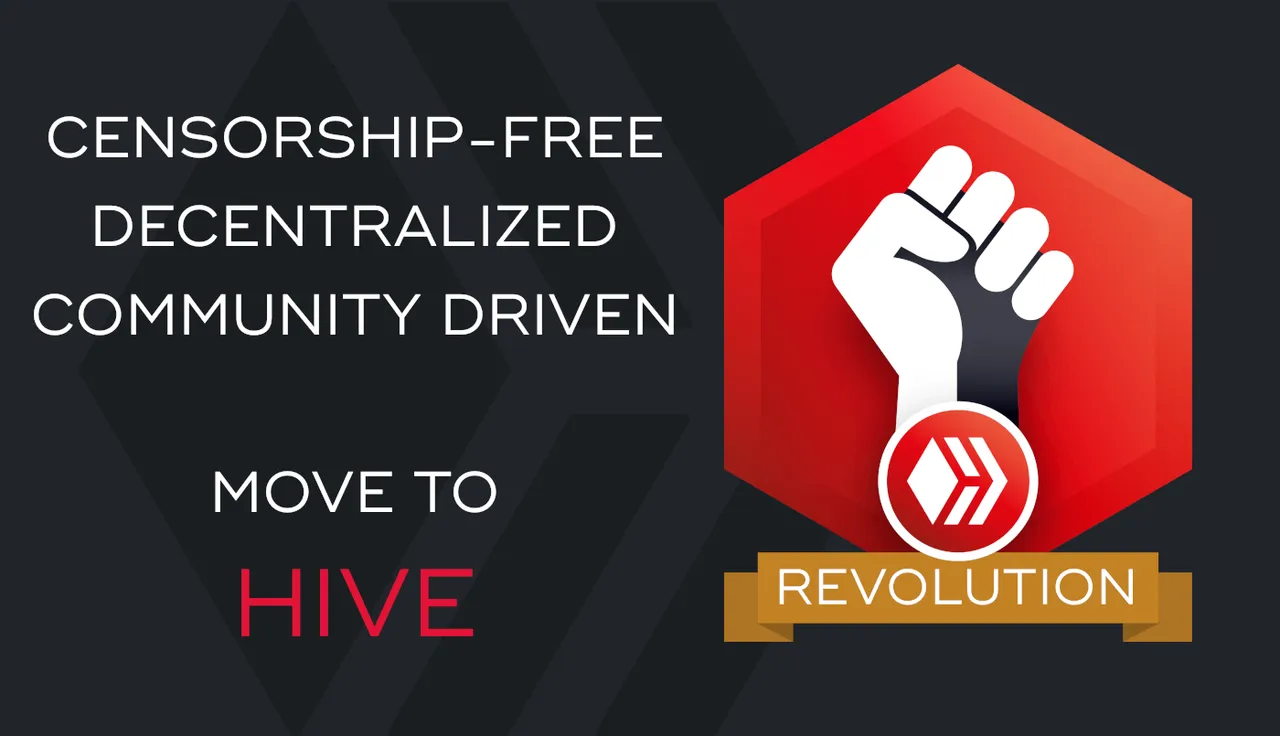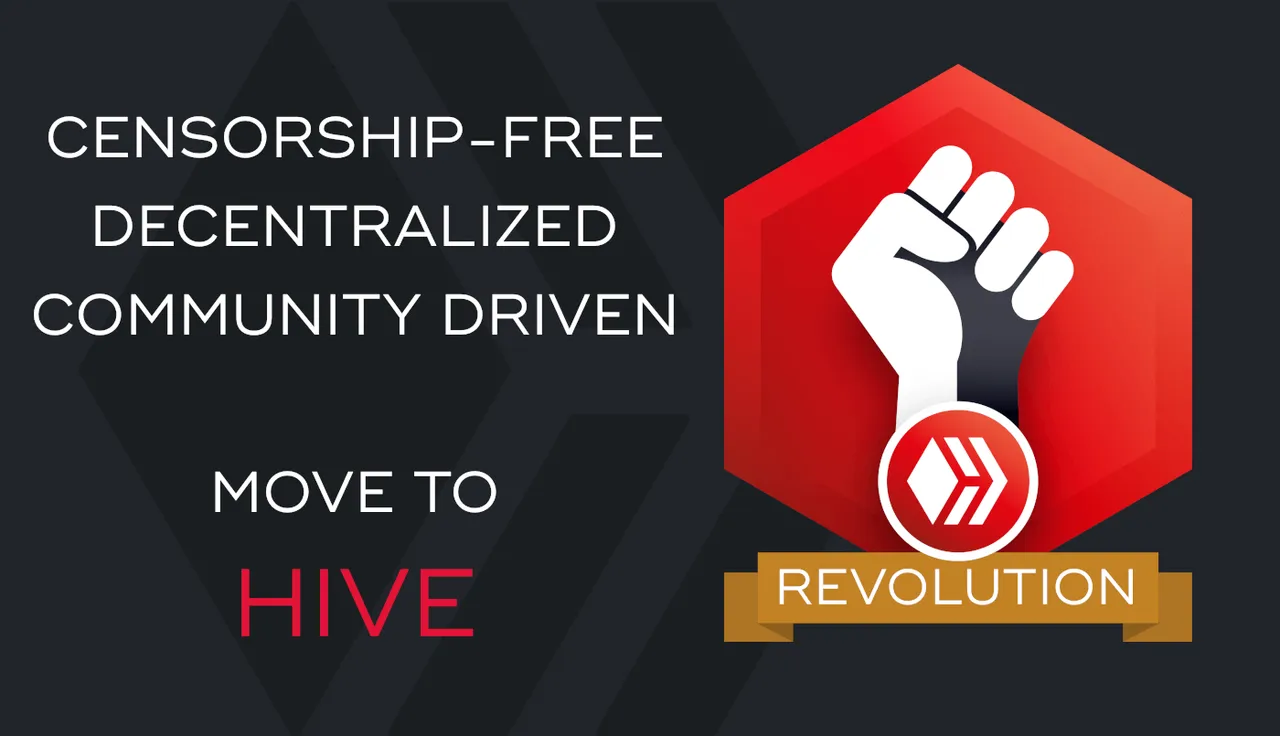Hi Everyone,

In this post, I will be explaining my perspective and ongoing research in regards to valuing life in terms of quality of time. Value, of almost anything, is typically represented as a monetary value. Having more money (purchasing power) is usually perceived to be an improvement over having less money. The sacrifice to obtain that money is often given less concern. That sacrifice is often in terms of quality of time. To acquire more money typically requires a person to work to earn an income. The level of satisfaction obtained from a job varies from person to person. However, most people would agree that working is generally not their preferred activity. There are other activities, which they would prefer to be doing. Therefore, working to earn money comes at a sacrifice. Does the cost of the sacrifice exceed the benefit obtained from acquiring the money? Having less money and more time to enjoy activities that give greater pleasure could be a better option for many people.
Valuing in time
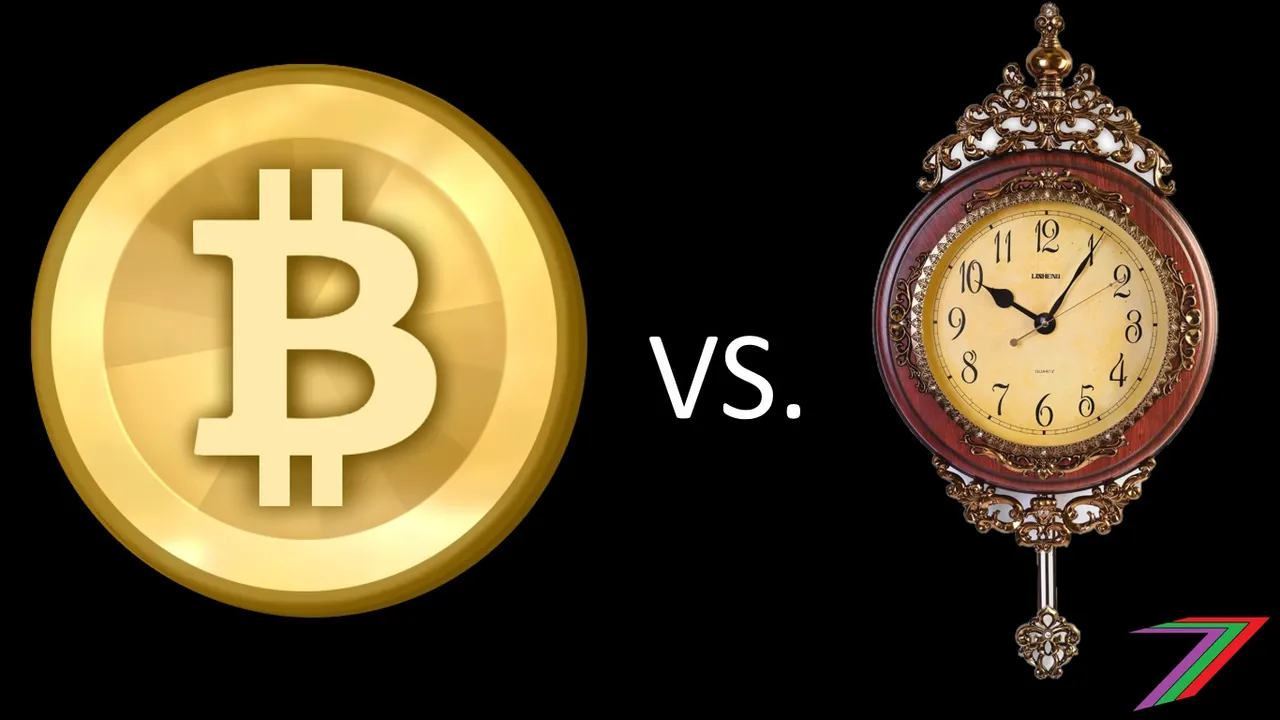
I have mentioned in several of my posts and videos that time is a better measure of value than money. To articulate that a little further, value can be even better measured as quality of time. The duration of our lives are measured in time and how we experience that determines our quality of life. Our actions can improve our quality of time in the present and/or in the future. For example eating a sandwich. If the sandwich tastes nice, we are improving our quality of time in the present. The sandwich addresses our hunger and therefore improves are quality of time several hours beyond the period required to consume the sandwich.
People need to decide how they want to use their time. How focused should they be on improving time experienced in the present compared to time they expect to be experiencing in the future. Future expected experiences could be considered in the short-run, medium-run, long-run and across different periods. Expected future experiences are also uncertain. A future experience planned to occur in a particular way could turn out to be completely different.
Money adding value

People acquire money for several reasons. Most typically, money is acquired to increase purchasing power. More money enables the purchase of more or higher quality products or services. Money can also be used to elevate a person’s status in society. This can be from the earning of money itself or from the methods of acquiring money. High earning jobs often bring with them a higher status and image of success to society. Having money can offer greater freedom; people can take more time away from work or even leave a job with less worry about financial obligations. Money can allow people to support charitable causes and offer help to those that are lacking in financial resources; this is sometimes referred to as psychic income obtained from altruism. The acquisition of money also makes it easier to acquire more money to be used to continue the activities as described above.
Having money can certainly add value to person’s life. However, how much money is required to add sufficient value to your life. A basic amount of money is required to obtain the essentials of living such as food, water, shelter, power, and sanitation. Additional money is required to address certain wants that are not essential but add great value to life. Even more money is required to be able indulge in certain luxuries. Money has a diminishing marginal utility. As we acquire more money, the less value each additional unit of money adds to the quality of our lives. This can be expressed in Figure 1.
What can money get you?
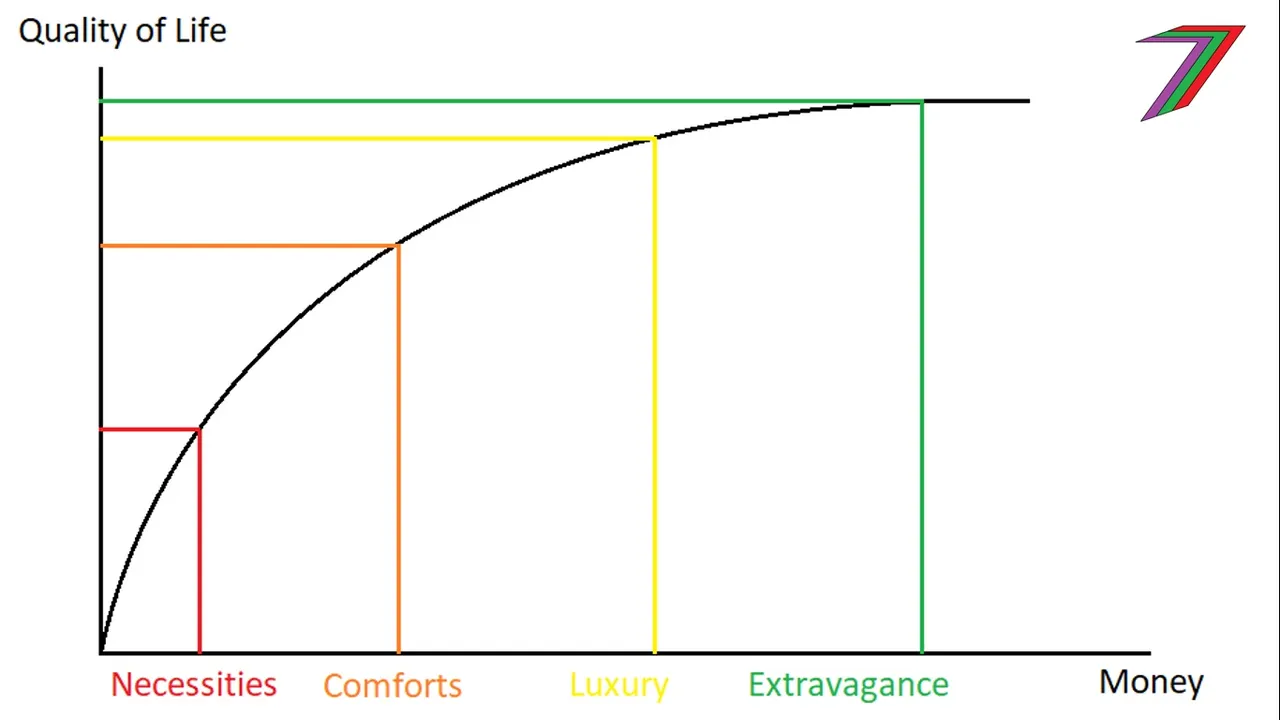
Note: this a rough depiction of declining satisfaction from accumulation of monetary wealth
Figure 1 breaks down what money can buy in relation to the impact it has on quality of life. I have used and defined four categories of goods and services that can be acquired with money. They are as follows.
- Necessities
- Comforts
- Luxury
- Extravagance
Necessities are the basic needs such as food, water, shelter, clothing, footwear, power, and sanitation. Comforts are wants that make life more enjoyable but you will not die without them. These wants could include modern appliances, variety of clothes, tasty and nutritious food, mobile phone, motor vehicle and furniture. Luxuries are goods and services that serve beyond typical needs and wants. Luxuries could include travelling abroad, high-end brands (e.g. clothes, watches, shoes, and wine), jewellery, specialty restaurants and limousine services. Extravagance is luxury to the extent of opulence. Extravagance could include exotic cars, yachts, mansion, travelling in private jets, tailored designer fashion accessories, and high-end designer jewellery.
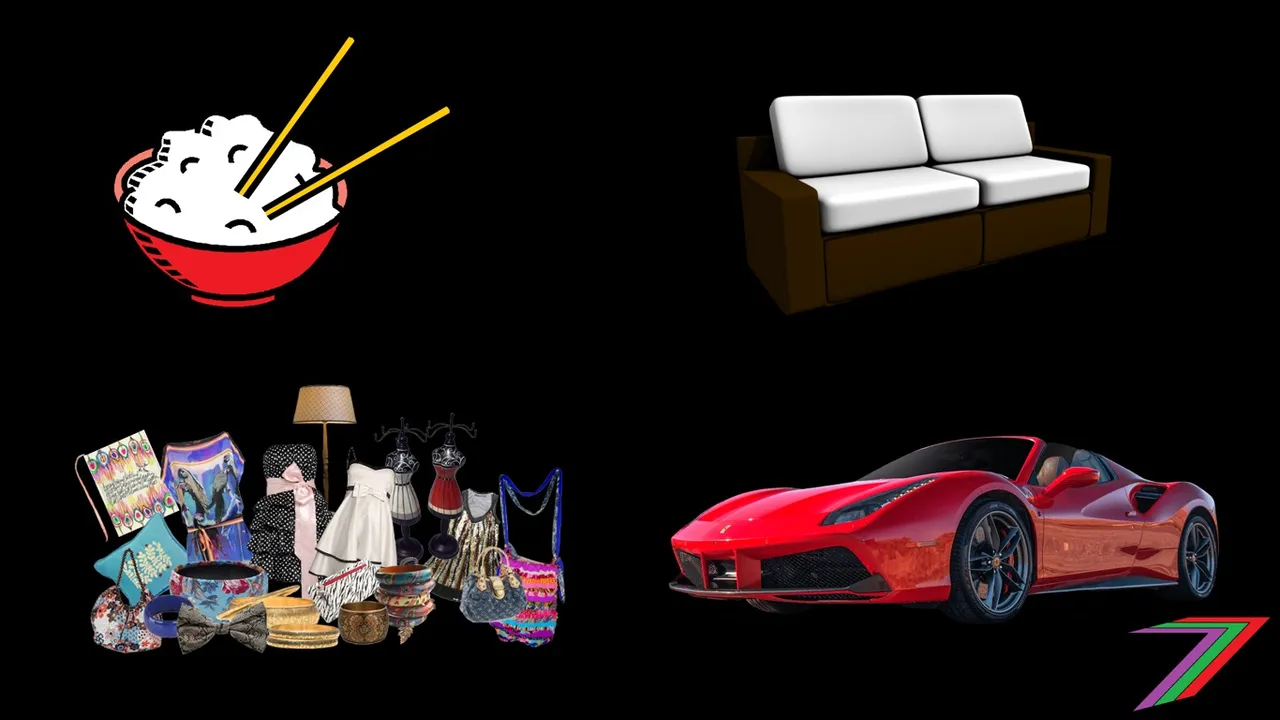
There is flexibility in regards to what fits into each category. As affluence increases, many of the luxuries will be considered comforts and many comforts will be considered necessities. A mobile phone is a perfect example of a comfort that many now define as a necessity.
Value beyond money

As discussed in the previous section, access to money can be used to improve the quality of life. These improvements are still subject to several conditions. Economists assign a value of utility based on the acquisition of a particular good or service. This value does not consider the available time to utilise this good or service. A person may acquire a luxury car but rarely drives or even sees that car. This person may only achieve satisfaction from the knowledge of possessing such a vehicle rather than enjoyment of using that vehicle. If time is not available to enjoy purchases, the value these purchases add to a person’s quality of life is limited. This lack of value will become more apparent as a person accumulates more items.
What money does not buy?
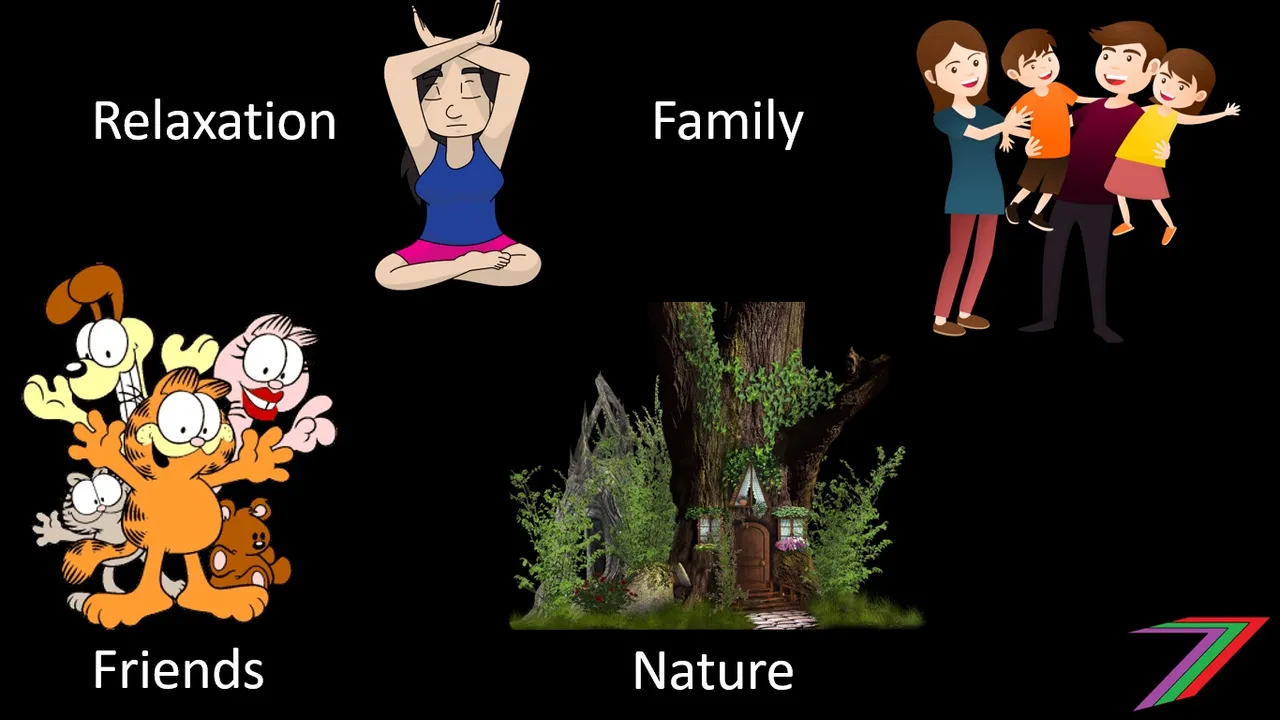
Money cannot buy everything. Money cannot buy happiness. Money can provide the means to obtain greater happiness, which is not a guarantee of happiness. There are many guides and books prescribing how to achieve happiness. Most of this material does not recommend dedicating your life to accumulating as much wealth as possible. Instead, the most likely key to happiness is a combination of using what you can buy, who you can spend time with, where you spend this time, reducing stress, maintaining good health (physical and mental). The pursuit of more money can become a hindrance to achieving happiness if it prevents or restricts how you use your time or creates stress that limits your capacity to enjoy life.
Paradox of happiness (Easterlin Paradox)

I want to introduce briefly an observation made regarding financial wealth (money) and happiness. Richard Easterlin in his many academic papers has researched the correlation between happiness and wealth. His research has often led him to the conclusion that increased financial wealth does not increase happiness overtime (longitudinal studies). Instead, financial wealth increases happiness amongst people living in the same period as well as geographical location. It appears that financial wealth increases happiness if that financial wealth is relatively higher than that of the rest of the community. This raises the question of the extent that increased purchasing power adds to happiness compared to social status obtained from higher financial wealth.
Backward bending supply curve of labour

I also want to introduce the backward bending supply. In theory, a backward bending supply curve can occur for the labour market once the wage rate reaches a particular value. At this point, workers realise that they would rather spend their time engaging in activities other than work (leisure). The additional income from working longer hours adds little value to their life compared to the value they could obtain doing something that is not work. Figure 2 contains the backward bending supply curve.
Figure 2: Backward Bending Supply Curve
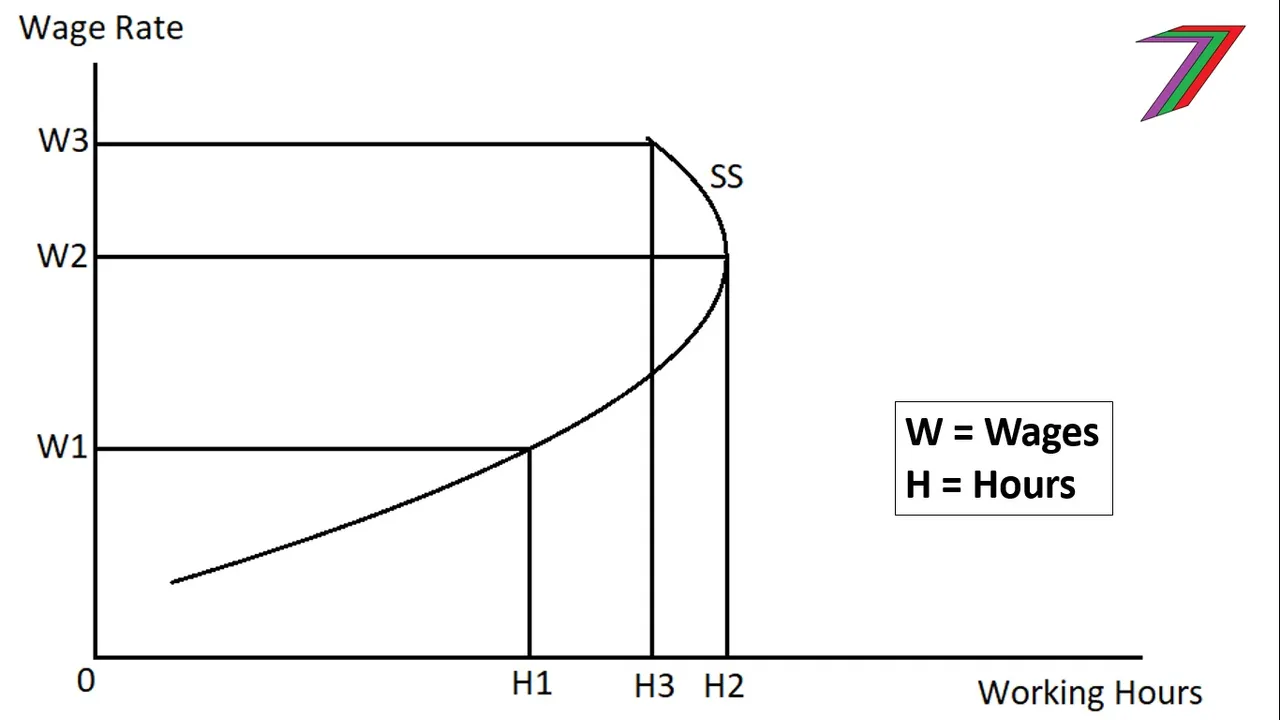
The backward bending supply curve also supports my argument in regards to valuing quality of time. I will write a more detailed post regarding the backward bending supply curve another time. If you want to learn more about the backward bending supply curve, I recommend that you read ‘Backward Bending Supply of Labour’. This article, written by a student, is informative and provides a good basic technical explanation.
Measuring quality of time

As an economist, I am drawn to finding ways to measure things. Economists typically look to provide a monetary value. Considering the flaws of measuring quality of life and happiness as a monetary value, I am proposing measuring in quality of time. I have previously worked on algorithms to display the relationships between utility/satisfaction/happiness to time, activity, and purchasing power as well as the externalities of our actions. I intend to experiment with the algorithms in a model. The model parameters will require considerable testing. I will dedicate a post to explaining this algorithm. This will be a very technical post.
I believe quality of time should be measured in regards to the activity as well as how that activity is experienced over a period of time. What activities does a person engage in on a daily basis? How much enjoyment or satisfaction does a person obtain from these activities? For example, imagine that a person engages in the following activities in a day.
- Travelling (2 hours)
- Working in office (8 hours)
- Sleeping (7 hours)
- Household chores (2 hours)
- Eating and drinking (2 hours)
- Relaxing (2 hours)
- Socialising (1 hour)
A person could assign a score between 1 and 10 for the level of enjoyment obtained from these activities. For example, if a person scored the above activities as follows.
- Travelling (3 out of 10)
- Working in office (4 out of 10)
- Sleeping (6 out of 10)
- Household chores (2 out of 10)
- Eating and drinking (7 out of 10)
- Relaxing (8 out of 10)
- Socialising (8 out of 10)
This person would have a weighted daily score of approximately 5.1 out of 10. The low score of 4 from working 8 hours in the office pulls the weighted average score down. If this person enjoyed their work, therefore assigned a score of 7, the daily score would increase to 6.1 out of 10.
A person does not engage in the same activities every day. The example given above resembles a working day. What about non-working days? Time consumed by working could have been used for other more enjoyable activities. A higher income should enable greater options for those non-working days. A person could choose to have a lower level of satisfaction on working days to obtain a higher level of satisfaction on non-working days. A person needs to decide if the sacrifice of working more hours or having a less enjoyable job is worth the sacrifice to improve the quality of the time not spent working.
Second and third party effects
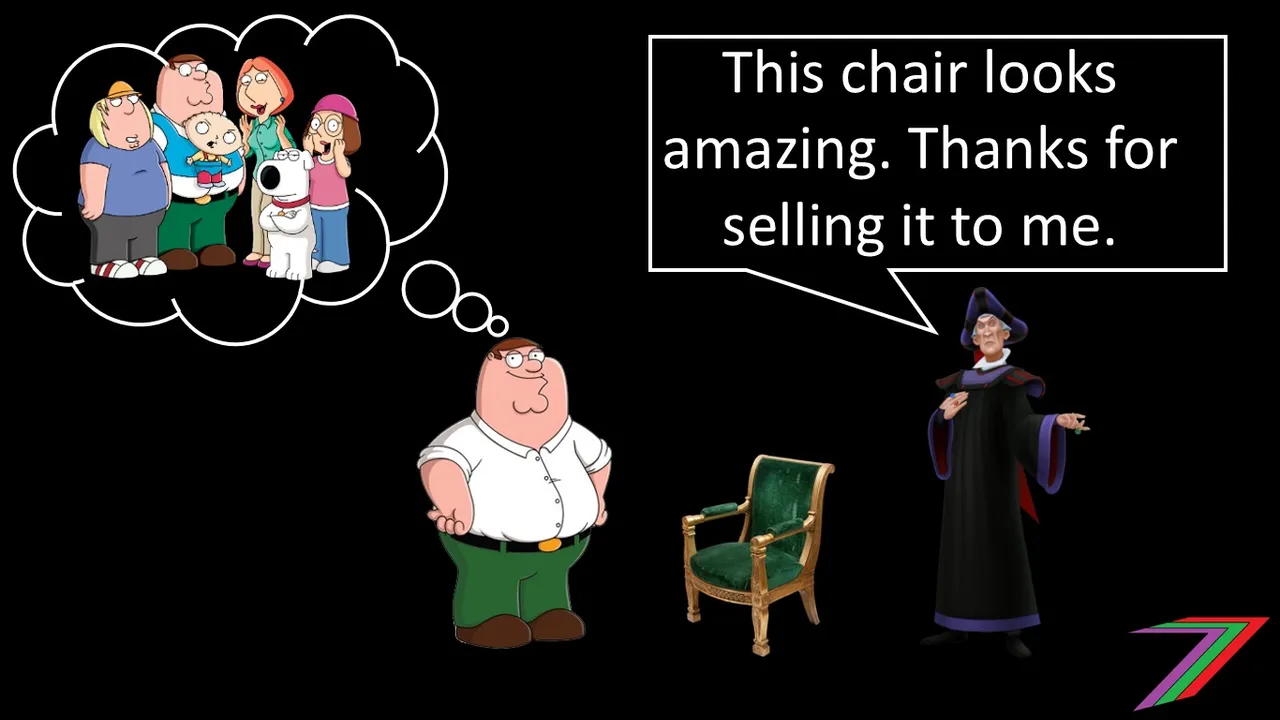
As part of my work, I will be looking at the effects (positive and negative) on second and third parties from time engaging in paid work as well as time not spent at work. For example, a person could make chairs. The chair-maker (chairbler) will get some level of enjoyment from making chairs and will receive money in exchange for the chairs. This money can be used to add value to the chair maker’s life in some other way. The chair-maker makes decisions based on his own level of satisfaction. The person who buys the chair also benefits; that is why they bought the chair in the first place. In economics, this is called consumer surplus. The chair-maker can go and spend his spare time with his family and friends. If the chair-maker is a likable person, he could be adding value to the lives of the people through his socialising and interaction.
Conclusions

I believe many people do not intuitively assess value in regards to time; this could lead to more effort being placed in pursuing increased financial wealth to obtain more purchasing power. The emphasis of society on material wealth adds to the distortion of this perception. My work in regards to measuring value in terms of quality of time should provide an indication of how well people are utilising their time as well as how patterns of behaviour can be influenced to improve quality of life.
I also aim to incorporate my work, in regards to quality of time, in my ‘Cruelty-free’ economics series. This work is still in its infancy and is therefore currently treated as a standalone area. I will have several more posts to come in regards to quality of time. I hope you found this post informative.
Post Beneficiaries
The beneficiaries of this post based on the top three upvotes of the previous post are:
Each beneficiary will receive 20% of the post payout. Thanks for your support.
A fourth beneficiary has not been added because of the lack of engaging comments in the previous post. I am quite surprised how difficult it is to giveaway money on Steem.
To learn more about post beneficiaries you can read my post using the following link.
